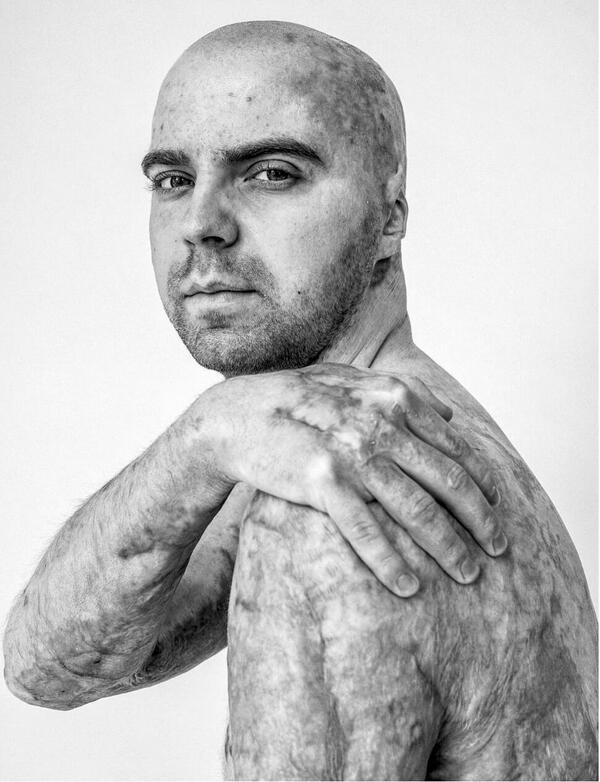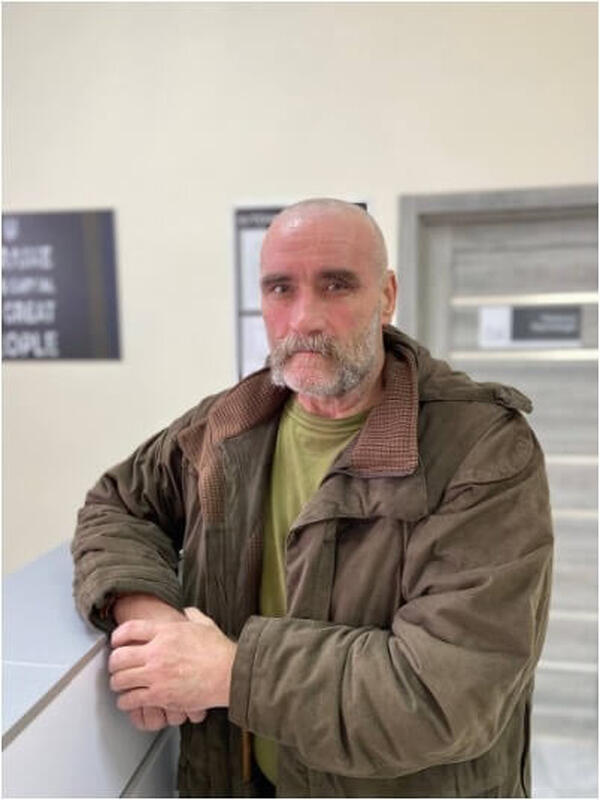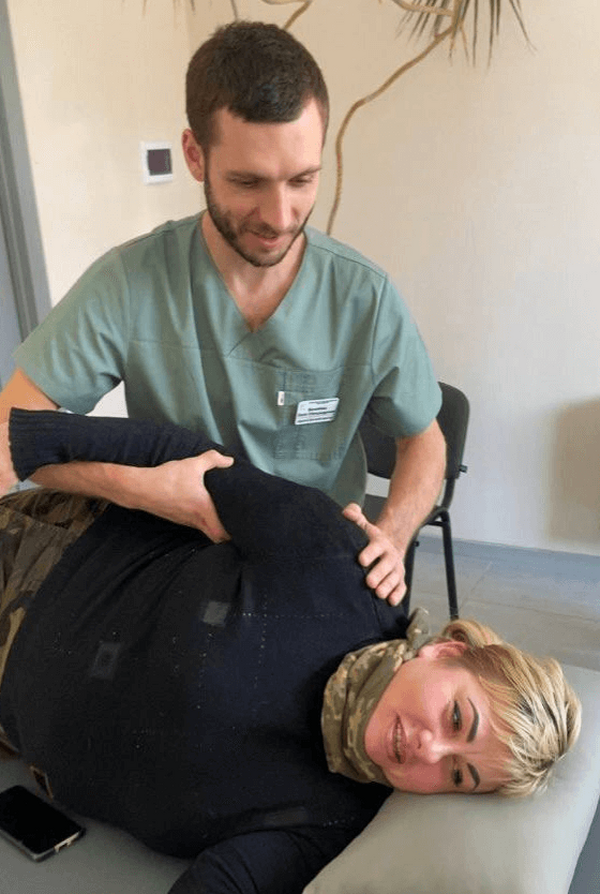Dmytro, a war victim with severe burns, found hope and healing at the Way to Health rehabilitation centre. Through loving one-to-one care, therapeutic exercises and psychological support, he regained physical strength and emotional stability. Dmytro's inspiring transformation highlights the power of professional support in rebuilding lives after trauma. His story proves that with determination and the right resources, the road to recovery is possible, no matter how difficult the journey may seem.
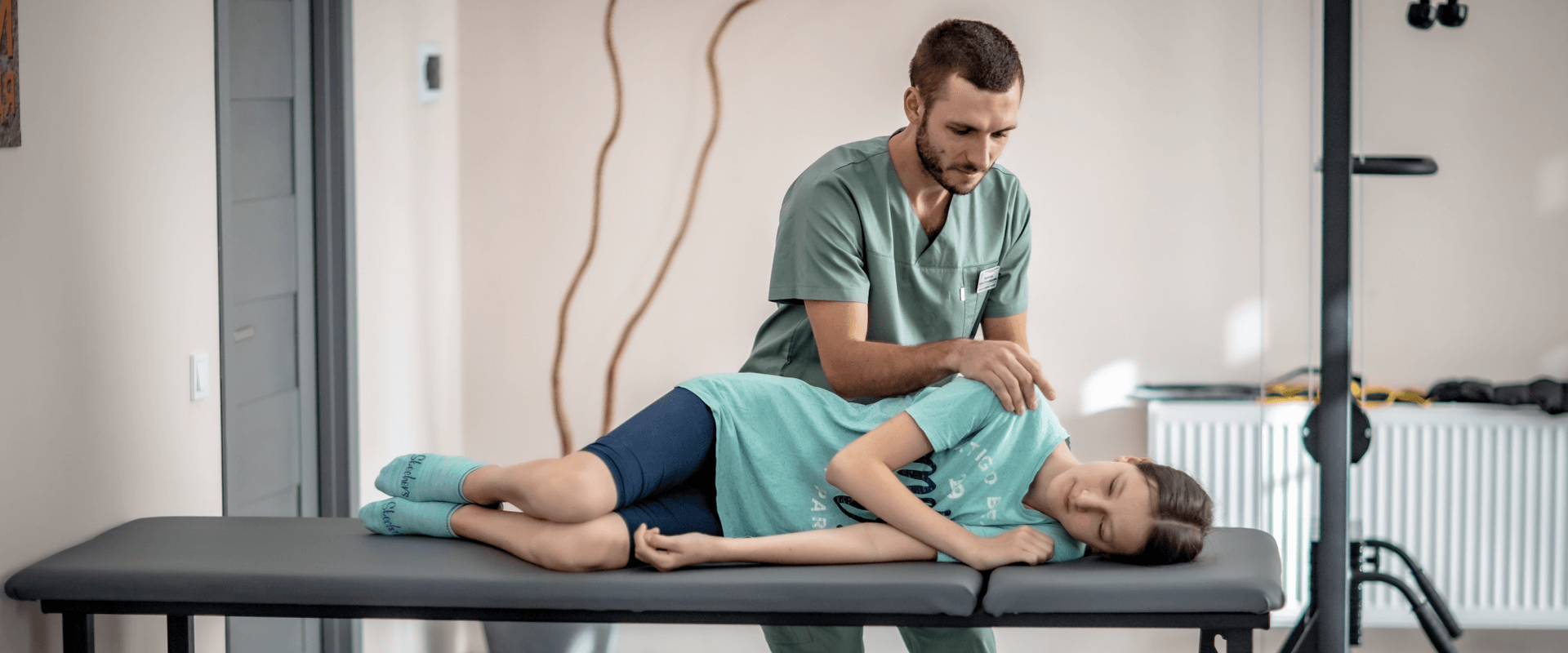
OUR WORK
'Way to Health's' team of professionals consists of qualified and experienced physiotherapists, occupational therapists and psychotherapists. The specialists work according to professional international standards, approved by the Ukrainian Ministry of Health and Welfare, to ensure and continuously improve the quality of treatment. These standards are based on scientific research, expertise and experience of health professionals and patients. Therapists keep their skills up to date by attending training courses and sharing new treatments with colleagues, as the situation in their country allows.
The patients who come to the rehabilitation centre have war injuries ranging from gunshot wounds to amputated limbs. Many patients also have psychological problems such as post-traumatic stress syndrome. A treatment plan is drawn up for each patient, taking into account their physical and psychological injuries, and with great attention to the individual.
Personal attention and loving care are paramount at 'Way to Health', allowing victims to tell their stories and feel heard and involved in the treatment. The aim of treatment is always to enable people to function as independently as possible in their own environment and to build a life of dignity.
Physiotherapy
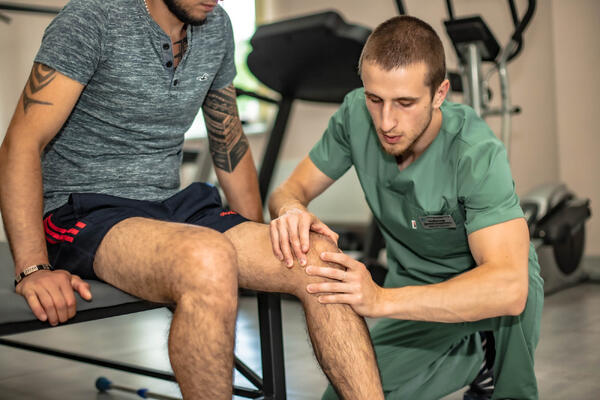
One of the methods used to rehabilitate victims is physiotherapy, which reduces or, in some cases, eliminates the patient's limitations. Treatment is always aimed at reducing pain, increasing mobility, improving posture and relaxing the body. Services include massage, mobilisation techniques, taping and exercise therapy to help the patient learn to function properly at home, with or without assistive devices. Aids such as balls, fitness equipment, climbing frames and massage products are often used during treatment.
Physiotherapy with Virtual Reality
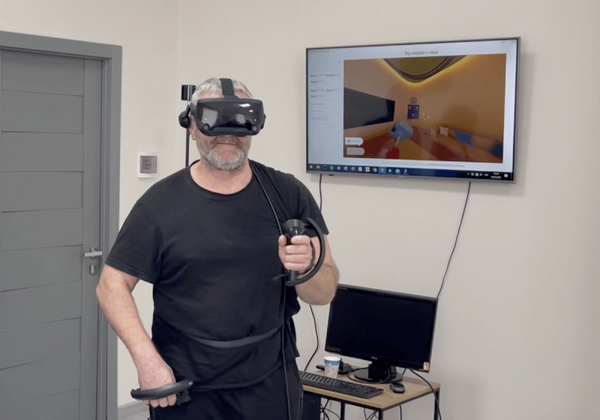
Virtual reality (VR) is a computer technology that allows the computer to create any environment. Using VR goggles, a patient can see, for example, a home or work environment in 3D, with appropriate sounds to make the experience even more realistic. Patients can perform personalised exercises to learn how to function fully independently again. Phantom pain is also addressed, and anxiety and stress are reduced through the use of VR. Because the patient is cut off from the outside world and can concentrate on the exercises, the treatment is more effective.
Psychotherapy
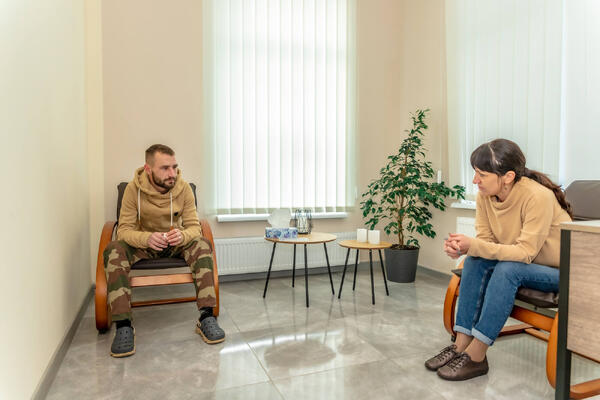
Psychotherapy is provided both in groups and individually. The therapist's approach is based on experience from other war situations. This may include psychoanalysis and psychotherapy to deal with painful memories, conflicts and various problems that disrupt the patient's daily life. Patients learn how to deal with these issues and integrate them into their lives.
Occupational therapy
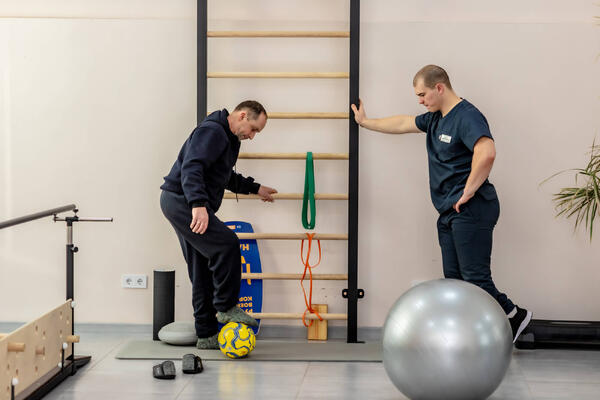
Occupational therapy is designed to help patients who, as a result of their disability or impairment, have difficulty carrying out activities of daily living. These activities can be in the areas of work, leisure, housework or self-care. For example, a patient may no longer be able to tie their own shoes because their fine motor skills are severely impaired. The occupational therapist will start by making an observation and, based on this, will draw up a plan which may include advice, exercises or aids, if these are currently available in the Ukraine.
This video gives an impression of the approach of the therapists of 'Way to Health'.
In addition to the direct victims of war, such as soldiers and civilians affected by attacks, there are also many indirect victims: family members such as partners and children. Way to Health has opened its doors to this group as well. The therapists are always there to listen and offer a shoulder to cry on, but also provide targeted therapy, counselling and training. This enables victims and their families to rebuild their lives as best they can.
Success stories
With their permission, we would like to share the personal stories of Dmytro, Mykola and Lesya. In times of pain, grief and despair, it is important to focus on what is going well. This keeps the people of Ukraine and the staff of Way to Health hopeful, and hope springs eternal.
